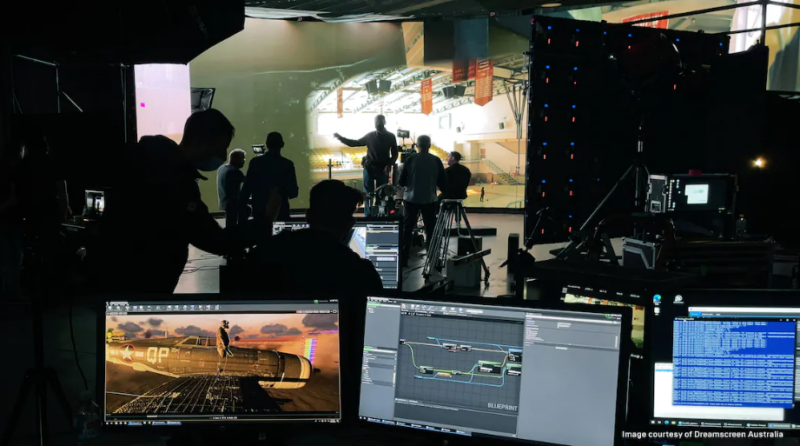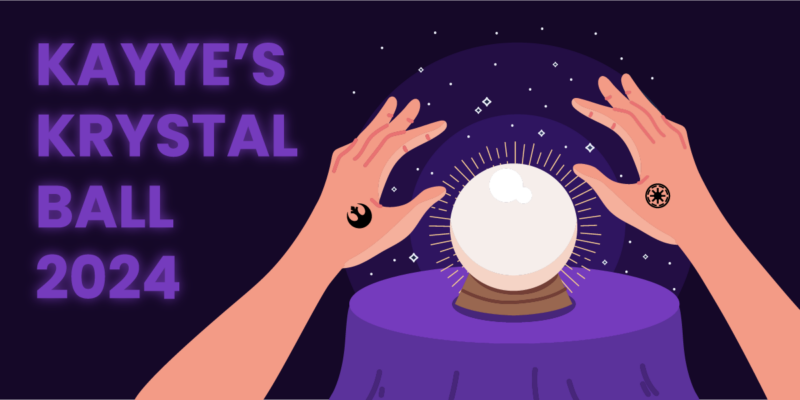The Anatomy of a Great Keynote
I had the opportunity to go to many events over the last several years. The events have ranged to major ones like InfoComm or NAB, to events put on by distributors like Almo’s E4 or Stampede’s Big Book of AV, to end user focused events like CETW or CSN.
In many cases these events kick off with a keynote speaker. I’ve had the privilege of seeing people like rAVe’s Gary Kayye give his Krystal Ball, Cisco’s Patrick Finn talk about how we encourage more women to get into STEM careers, and Altimeter Group’s Brian Solis talk describe the new customer engagement in a digital world.
The keynote is a very important piece of an event like this. It sets the tone for the event as a whole, and a lackluster keynote can really suck the energy out of a crowd.
Watching as many of these events as I have, I can’t imagine the pressure one of these speakers must feel to deliver.
Today I attended the Technology Convergence Conference (TCC) in Santa Clara, an annual event put on by an AV/IT consultant named Teladata based out of Fremont, CA. The event opened with Maricel Cerruti, Founder of TCC, introducing the event, what the event would entail, and then ending with a video montage about artificial intelligence (AI) accompanied by a prolific speech on robotics and sentience from iRobot.
This in itself inspired reflection and an invitation to awe at the potential future of human and machine interaction. And then Maricel introduced the Keynote Speaker for the event, John C. Havens, and his keynote entitled “Heartificial Intelligence, Embracing Our Humanity to Maximize Our Machines.”
The lights dimmed and a guitar blues riff started playing. I looked down, listening to the music as a harmonica started to play along, and when I looked up, I realized it was actually John Havens playing along. He then looked up, and the 150” screens to his left and right came alive with lyrics as he sang the HumanIT Blues about the convergence of man and machine. It all culminated with the audience standing and singing along to the chorus. We were in.
The talk then started by referencing Kurzweil, the singularity, and the potential of machine consciousness facilitated by AI algorithms. Every AV, IT, and SciFi geek was paying attention at this point for sure.
As he spoke about the future of technology and its implications.
“If you give one person a stick, they may use it to start a fire and warm several people. Give that same stick to someone else and they’ll beat someone over the head with it.”
Technology is the same he reminded us.
He used examples form a show I hadn’t heard of called Black Mirror, a new wave, UK Twilight Zone of sorts that I will definitely binge watch on Netflix, that suggests a future in which we can recreate our lost loved ones from their digital footprints left behind, (check out LifeNaut), or even use Augmented Reality (AR) contact lenses to “block” the things we don’t find convenient. When a few laughed at that, he reminded us that many do it now. We are all guilty of turning our head sometimes when we see a homeless person or even blocking or unfriending someone on social media when they make a comment we disagree with. His point was that there is a difference between curating your feed and potentially eliminating exposure to things that may actually make you a better or more rounded person. I remember Brian David Johnson warning of this potential in Screen Future as well. By only consuming what we agree with, we polarize ourselves even more and create more division and conflict.
Another great little side story was the potential for us to lose the ability to communicate through expressions, as the preoccupation with our devices may cause our facial musculature to atrophy.
We were reminded to “Mind the Gap” between technology and humanity. He gave us 3 ways in which to do this, being (G)ratitude, (A)ltruism, and (P)urpose. It was a great way to transition from some cautionary warnings about the misuses of technology and then give a hopeful strategy on how to maintain happiness and relevance in an increasingly automated world.
It ended by addressing how living our values actually increases happiness. Isaac Asimov gave some rules about the laws of robotics, but that was just a story. This is real life. In a world where machines are starting to learn by our actions, reactions, and words, Havens asks
“How will machines know what we value if we don’t know ourselves?”
We all left with a mission to live our values and think about the implications of how we use technology on a daily basis, while being mindful of how advances in technology may affect our lives both positively and negatively.
Be “choiceful” he warns. “You can’t automate happiness.”
I don’t know how the keynote could have been much better. It was highly quotable and I live tweeted it as well. It was informative, entertaining, and it gave a call to action that left the audience on an up note. If you ever get a chance to see this man speak, go do it. To get a taste, here’s his TedX talk on Hacking Happiness.
Given that, John C. Havens has a book called “Genuine” coming out soon, and you can bet I’ll be one of the first in line to buy it.







